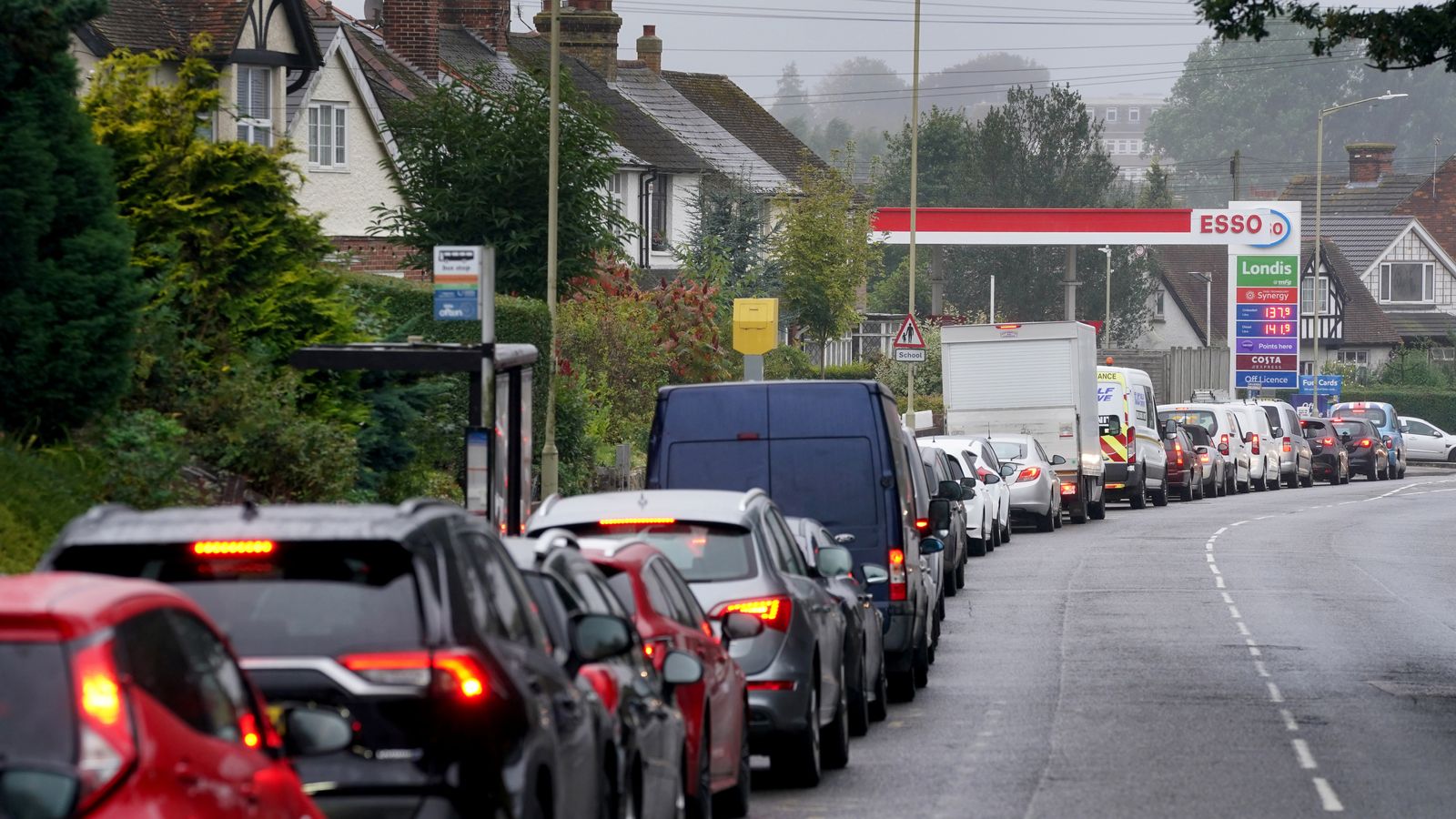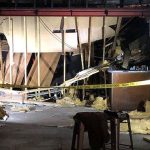Fuel shortages have improved since yesterday as surge buying wanes, but a north-south divide means some areas of the UK “remain critical” going into the next week, the Petrol Retailers Association has warned.
Brian Madderson, chairman of the PRA, said a lack of fuel remained a “really big problem” in London and the south east.
And he told Sky News: “We have just completed our survey of over 1,000 sites across the UK and the situation is very much better than it was yesterday.
“68% of sites have both grades, 16% have one type or the other, and so only 16% – compared to 27% yesterday – have no fuel and are dry.
“It is much better in the north and Scotland and London and the south east really remain the critical area going forward into next week.”
He said the situation is a “big 10-point improvement” over the last few days, as the army prepares to step in and deliver supplies.
Military drivers are out “out today training with existing drivers and will be ready to start on Monday taking their own tankers around”, he added.
He warned against “price gouging”, following reports some stations had increased prices by up to 10p a litre, but said consumers could expect up to 3p a litre increase due to the rise in wholesale prices.
It comes as Health Secretary Sajid Javid said the situation was “stabilising” in most parts of the country and that the military was only being deployed as a “precaution”.
Please use Chrome browser for a more accessible video player
Mr Javid looked to allay fears, however, telling Sky News: “I think it is right that as a precaution that the government has asked the military to help.
“I think that is the right measure to take to make sure that people have all the confidence that they need.
“I think that will further stabilise the situation and give more confidence.”
Senior ministers have been alarmed at how slowly the fuel supply disruption is improving, Sky News understands. After a week of forecourt chaos, motorists are still being forced to queue for hours at petrol stations around the country.
Announcing the plan to bring in the army, Defence Secretary Ben Wallace said: “Across the weekend over 200 military personnel will have been mobilised as part of Operation Escalin.
“While the situation is stabilising, our armed forces are there to fill in any critical vacancies and help keep the country on the move by supporting the industry to deliver fuel to forecourts.”
Cabinet Office minister Steve Barclay – who is in charge of the government’s response to the fuel crisis – appealed to motorists to stop panic buying at the pumps
“The government has taken decisive action to tackle the short-term disruption to our supply chains, and in particular the flow of fuel to forecourts,” he said.
Please use Chrome browser for a more accessible video player
“We are now seeing the impact of these interventions with more fuel being delivered to forecourts than sold and, if people continue to revert to their normal buying patterns, we will see smaller queues and prevent petrol stations closing.”
The government has also announced a temporary visa scheme for nearly 5,000 foreign food and haulage drivers that was due to expire on 24 December will now be extended to the end of February following criticism of the scheme.
Sir Keir Starmer said the temporary visa scheme would not be up and running “for weeks”, and that the Prime Minister should recall Parliament if necessary to rush through legislation to ensure shop shelves remain stocked in the run up to Christmas.
Follow the Daily podcast on Apple Podcasts, Google Podcasts, Spotify, Spreaker.
The decision to send in the army came as Rishi Sunak, the chancellor, warned shortages of goods could last until Christmas, with “real disruption in supply chains” not just in the UK but around the world.
One petrol forecourt owner, Mike Stayte told Sky News that deliveries were still unreliable, adding: “It’s peaks and troughs – one day you’re flat out or you’ll be taking three times as much as you normally do.
“The next day you run out of fuel and you’re sat there looking silly at each other, and things like sandwiches and food don’t get sold because people don’t come in.”






















